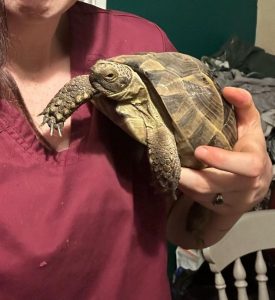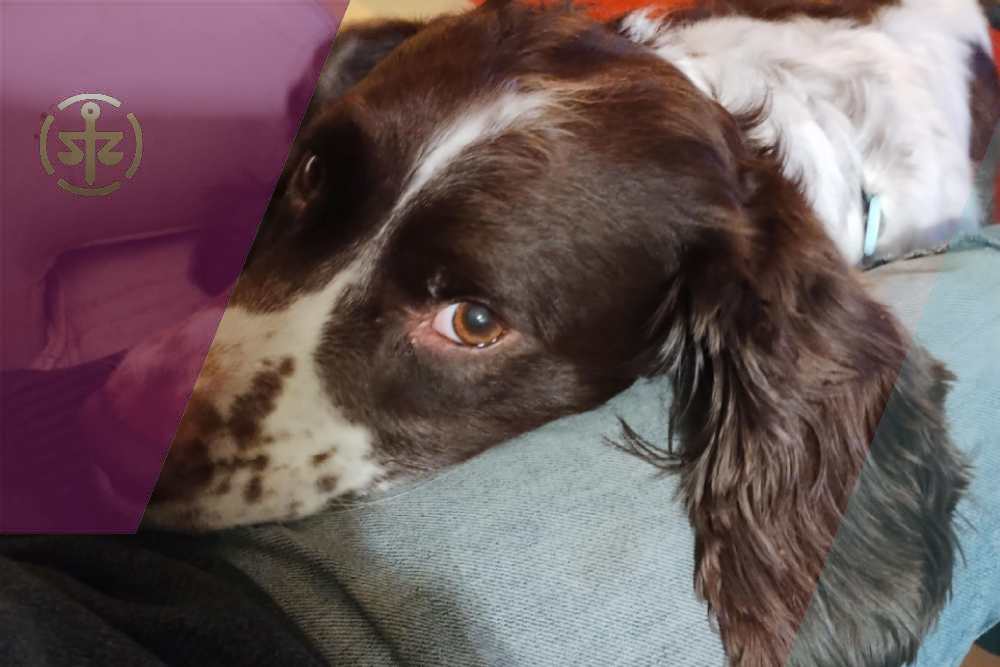Summary
Your pets are part of your family, so you need to care for them in your Will. We look at the ways you can provide for animals after your death.
Wills and Probate solicitor Bryony Wilmshurst warns that a significant number of UK pet owners are leaving their beloved animals vulnerable after they pass away; only a quarter (26%) of UK adult pet owners have provided for their pets in their Will.
The research, conducted by Census Wide on behalf of The Association of Lifetime Lawyers, highlights that 59% of UK adults over 30 were unaware that pets are considered assets in an estate, meaning they cannot legally inherit money or property.
Can I leave everything to my dog?
Whilst Karl Lagerfeld famously left his fortune to his cat, UK law prevents pets from directly inheriting money or property. Instead, pet owners must make arrangements to ensure that their pets are cared for by a trusted person after their death, and these arrangements should be outlined clearly in a Will.
How do I look after my pet when I’m gone?

The Association of Lifetime Lawyers represents a community of qualified legal professionals in the UK, and they are urging pet owners to take the necessary steps to protect their animals in their Wills. This includes making provisions for pets in their Wills and discussing these plans with loved ones. This ensures that pets are cared for according to the owner’s wishes and avoids any uncertainty over a pet’s future.
Bryony Wilmshurst, Partner and Head of Wills and Probate at Cunningtons Solicitors, explains:
Bryony continues:
What happens if you don’t make provisions for your pet?
Without clear instructions in your Will, your pet could face an uncertain future. The executor of your estate may have to make decisions about your pet’s welfare without knowing your wishes, which could result in your pet being re-homed with someone you wouldn’t have chosen or, in the worst-case scenario, being taken to an animal shelter.
Recent figures from the RSPCA show that approximately 6,000 animals are re-homed each year following the death of their owners, many of which could have been avoided with proper planning.
How to include your pet in your Will

There are several ways to provide for your pet in your Will:
1. Appoint a pet guardian
Nominate a specific person who agrees to take care of your pet.
This could be a family member, friend, or anyone you trust to provide proper care. Always discuss this with them beforehand to ensure they are willing and able to take on this responsibility.
2. Include a pet clause
Add a specific clause in your Will that outlines your wishes for your pet’s care.
This can include details about their routine, dietary needs, veterinary care, and any other important information.
3. Set aside funds for your animal’s care

Make specific financial provisions for your pet.
While your pet cannot inherit directly, you can leave money to the person who will be caring for your pet. This helps cover the costs of food, veterinary bills, and other expenses.
4. Consider setting up a pet trust
Yes, you can set up a trust fund for them.
For those who want to ensure their pet’s long-term care, setting up a pet trust is also an option. A trust can hold funds specifically for your pet’s care and can include detailed instructions on how the money should be used.
Common concerns and misconceptions
As we have shown, many pet owners assume that family members will automatically take care of their pets; but without formal arrangements, this can’t be guaranteed. It’s not the same as providing for children in your Will.
Others worry about the cost and complexity of including pets in your Will, but a simple pet clause can often be added to an existing Will without significant expense.
According to Bryony:
Advice for different types of pet

Different animals obviously have different needs, and your provisions should reflect this.
- Dogs and cats often adapt well to new homes but may need time to adjust. Consider appointing a guardian who already knows your pet.
- Exotic pets such as reptiles, birds, or amphibians may require specialised care. You might need to leave detailed care instructions or consider specialist re-homing organisations.
- Horses and livestock require significant resources and space. A specific funding arrangement or sale provision might be necessary.
- Long-lived pets such as parrots or tortoises may outlive multiple guardians, so succession planning is important.
Taking action now
The Association of Lifetime Lawyers recommends that all pet owners review their Wills to ensure their animals are protected, just as they would for the humans in their family. For those without a Will, now is the time to create one.
Pet owners can contact their local branch of Cunningtons Solicitors for a consultation on how to best protect their pets’ futures. With a dedicated Wills and Probate department and as members of the Association of Lifetime Lawyers, the Cunningtons’ team is there to provide you with comprehensive advice on including pets in your estate planning. Visit us at your local branch in Braintree, Brighton, Chelmsford, Croydon, Hornchurch or Wickford.
Or, for more information, please contact:
Bryony Wilmshurst
Partner, Wills and Probate Department
Cunningtons Solicitors
Email: bryony.wilmshurst@cunningtons.co.uk
Telephone: 01376 567280

